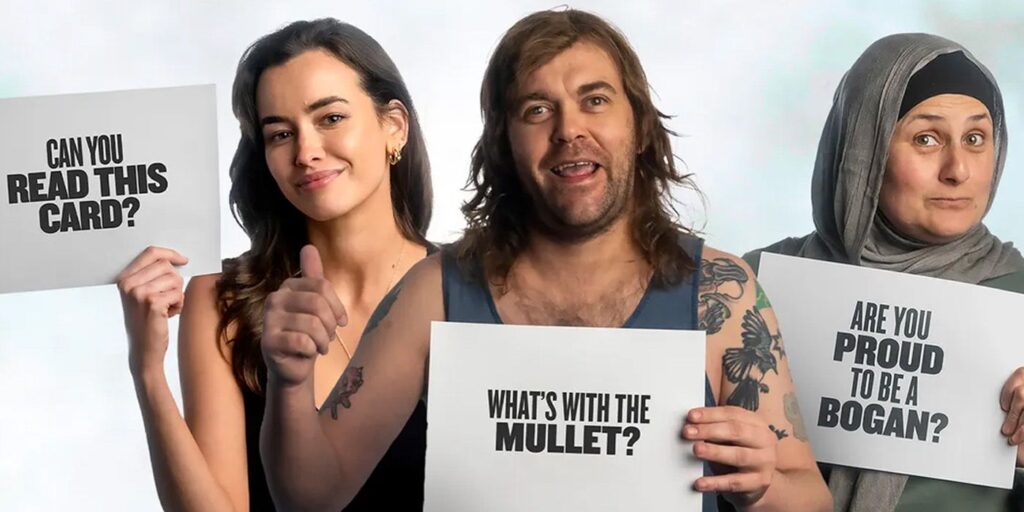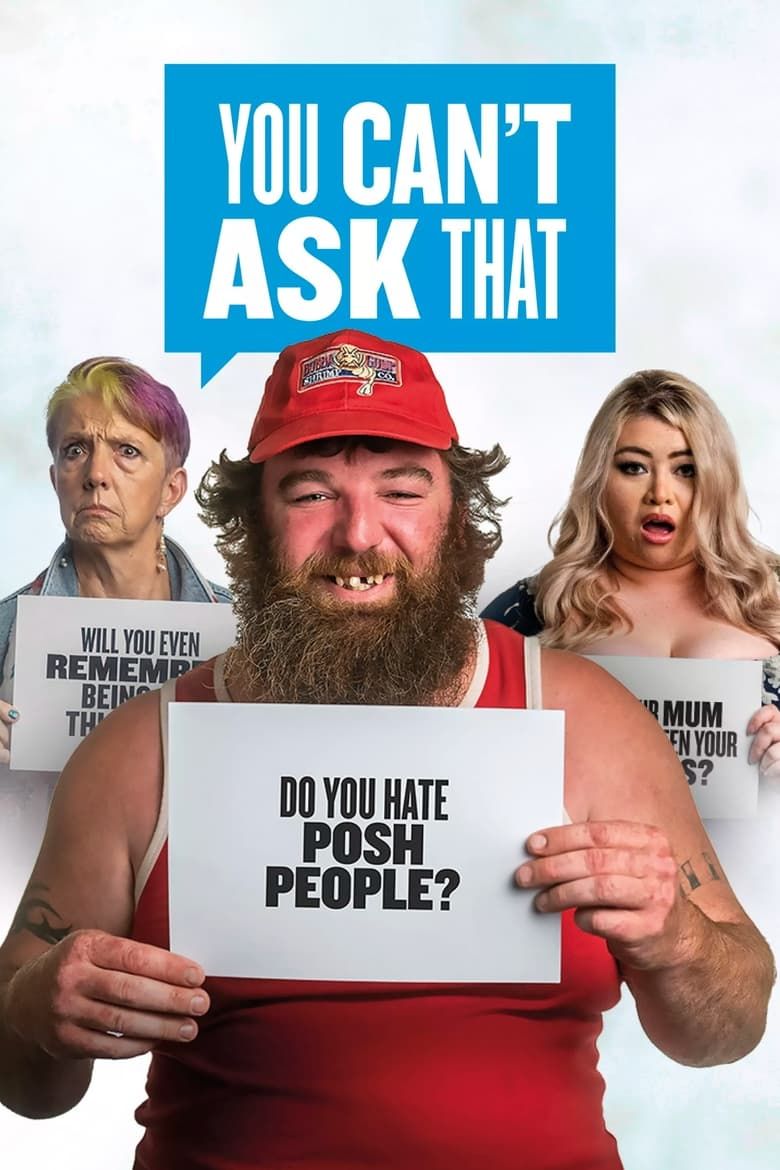When does a documentary cross the road? Much more, when does a sequence fail to ever even strategy that boundary, with a creator’s reluctance to ask arduous questions resulting in a mission that leaves viewers as uninformed as they have been earlier than they pressed play? It is a effective steadiness, with many creators not understanding find out how to respect their topics however nonetheless asking the thought queries that make for essentially the most enlightening initiatives. Fortunately, Kirk Docker’s You Cannot Ask That understands it completely. Now streaming on Netflix, this Australian docu-series relies on figuring out that so many individuals have questions on totally different identities and communities however really feel like they can not ask them.
In some ways, this can be a superb factor; this can be very crass and unfair to topic somebody from a marginalized group to uncomfortable questions on how they dwell. However the series acknowledges that it is these lack of solutions that foster stereotypes, with the entire present being centered on presenting consenting individuals from totally different teams with all of the awkward questions viewers have. It is performed with the utmost respect and take care of these individuals and their experiences, and by creating an area the place even essentially the most incendiary questions will be requested respectfully, You Cannot Ask That turns into one of the most informative, necessary documentary series out right now.
A Good Documentary Is Exhausting To Discover
Even with its concentrate on asking uncomfortable questions, You Cannot Ask That is, in some ways, a satire of predatory documentaries. Particularly in the case of individuals from marginalized communities, many initiatives focus extra on creating dramatic moments for viewers than supporting the precise contributors. It is an unlucky apply that has marred a few of the hottest options; from Paris is Burning to The Florida Venture, these common documentaries have critiqued creators for not solely roughly prying into delicate subjects however failing to care about their topics’ wellbeing as soon as the cameras have stopped rolling. Sure, these present data to the overall viewers, however they typically fall into one in every of two classes: indecent exposés that sensationalize an individual’s ache, or deeply skewed tales that focus extra on the director’s personal narrative than the precise experiences of the teams being centered on. It is an especially dangerous development on this style, and it is even worse as a result of it undercuts the hazards of misinformation that this medium was constructed to combat towards.
Individuals have lengthy realized that it is teams’ lack of expertise about each other that results in hatred and bigotry. A lack of knowledge on identities totally different from one’s personal fosters stereotypes, with so many misled people seeing them as reality as a result of they haven’t any different information to attract from. After all, this is not true for everybody — some individuals select to consider in stereotypes just because they get pleasure from reveling in bigoted hatred — nevertheless it’s unlucky what number of long-lasting social points are the merchandise of some privileged group not understanding the lives of individuals totally different than them. It’s what makes documentaries so essential, but it is so unlucky how creators who do not perceive find out how to prioritize the themes’ consolation refuse to ask the hard-hitting questions on what it means to dwell as a sure id. Too many do not know find out how to navigate sensitive topics with grace and care, resulting in them not being mentioned in any respect and other people persevering with to having questions which are inappropriate to ask however are sometimes essential to grasp one other group. This perpetuates a dangerous cycle of misinformation and stereotyping, a cycle that You Cannot Ask That was created to combat towards.
‘You Can’t Ask That’ – Really, Right here, You Can
It is ironic how a lot You Cannot Ask That is ready to accomplish with so little truly taking place onscreen. In a documentary style crammed with creative new movie kinds and progressive methods of portraying data, this program brings it again to fundamentals by having each scene include an individual towards a backdrop, sitting in a chair and speaking to the digicam. Every episode follows a unique group; from Drag Queens to individuals who have survived pure disasters, these topics differ wildly. But what unites all of them is that these are populations who many individuals have questions on — ones who typically undergo as a result of individuals do not know sufficient about them. And that, largely, is the mission of the sequence, as each the minds behind it and the individuals in every episode have the identical objective in answering questions that vary from laughably easy to shockingly uncomfortable: helping people understand who they are.
From inclusive insurance policies to funding for various organizations, a lot of the fashionable world is knowledgeable by what individuals suppose of each other. Which means if most of the people is simply too afraid to ask a couple of sure group, that inhabitants often suffers, both as a result of a lack of expertise permits dangerous preconceptions to proceed or individuals who do not perceive the discrimination they face not caring sufficient to attempt to help them. The individuals in these episodes depart themselves susceptible to such inappropriate questions as a result of they know the solutions will assist individuals discover ways to help them, a tenuous course of that they luckily have an entire creative team to support them through. It is heartwarming to listen to the producers asking the themes how they really feel and what they consider the questions, with the individuals behind the digicam continually checking in to ensure the themes are giving their affirmative consent all through filming. It is a degree of care that’s proven much more ultimately credit, with nearly each episode that includes a thanks to an advocacy group that focuses on offering no matter group is being spotlighted with the sources they want. This all creates a well-informed, respectful strategy, with this completely easy setup managing to turn out to be one of the vital hard-hitting and illuminating applications ever.
‘You Can’t Ask That’ Solutions It All
Whereas You Cannot Ask That has a transparent concentrate on ensuring its topics are snug, that does not imply the sequence is not arduous to look at at instances. Even with their full consent, there are numerous questions posed that appear like their solutions are on no account well worth the discomfort it should put these individuals by to reply them. It makes viewers fear over the identical points they see in different documentaries, questioning the ethics of a sequence that appears to prioritize uncomfortable subjects — a question that the series welcomes wholeheartedly. As a result of that is what all the most effective, most respectful documentaries acknowledge, that by this style’s very idea there’ll at all times be the chance for toxicity each behind and in entrance of the digicam. You Cannot Ask That relies on that information and leans into it, seeing the problems of its contemporaries and combating them by being clear with audiences in regards to the objective of this whole idea. The topics are owed an enormous thanks to creating this system work in addition to it does, with their willingness to not solely reply the questions however present how they view each as essential, making your entire mission really feel as welcoming as it’s informative. It makes the information being provided that rather more priceless to everybody watching, because the clear respect of your entire sequence makes it clear not solely that what’s being stated is true, nevertheless it’s data that the individuals from these communities want viewers to listen to.



